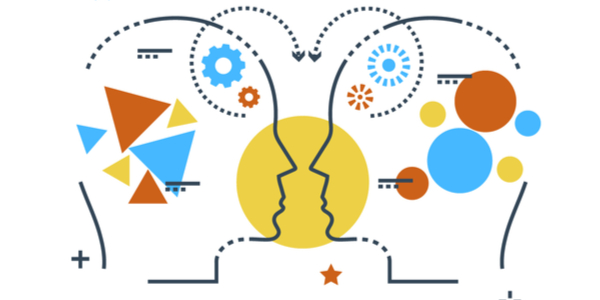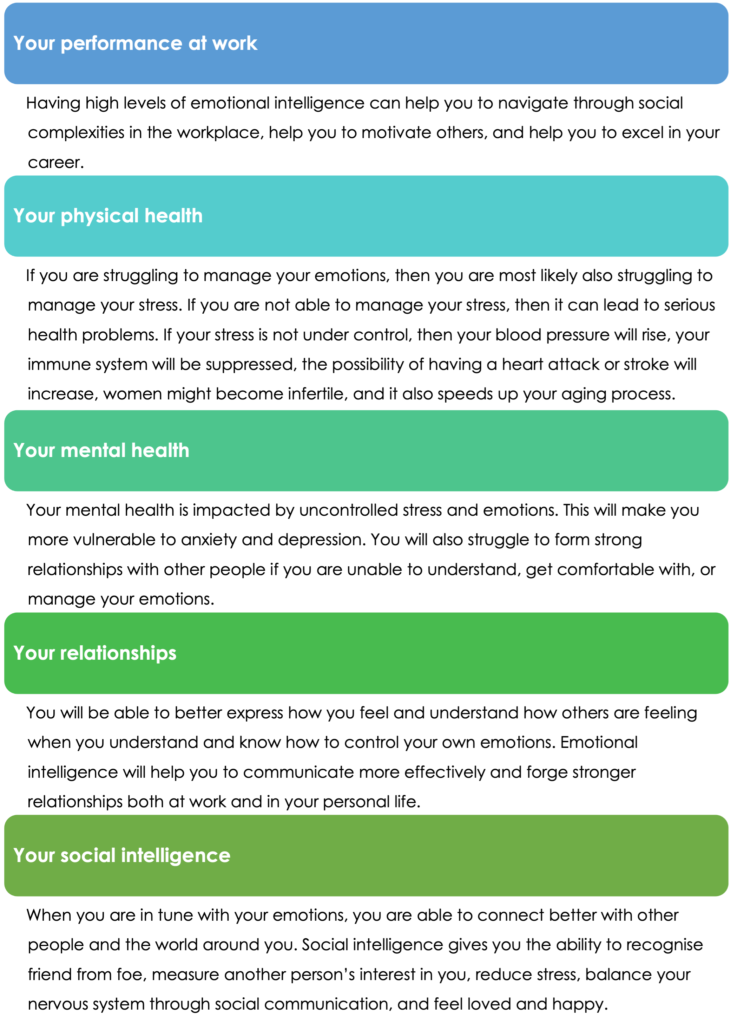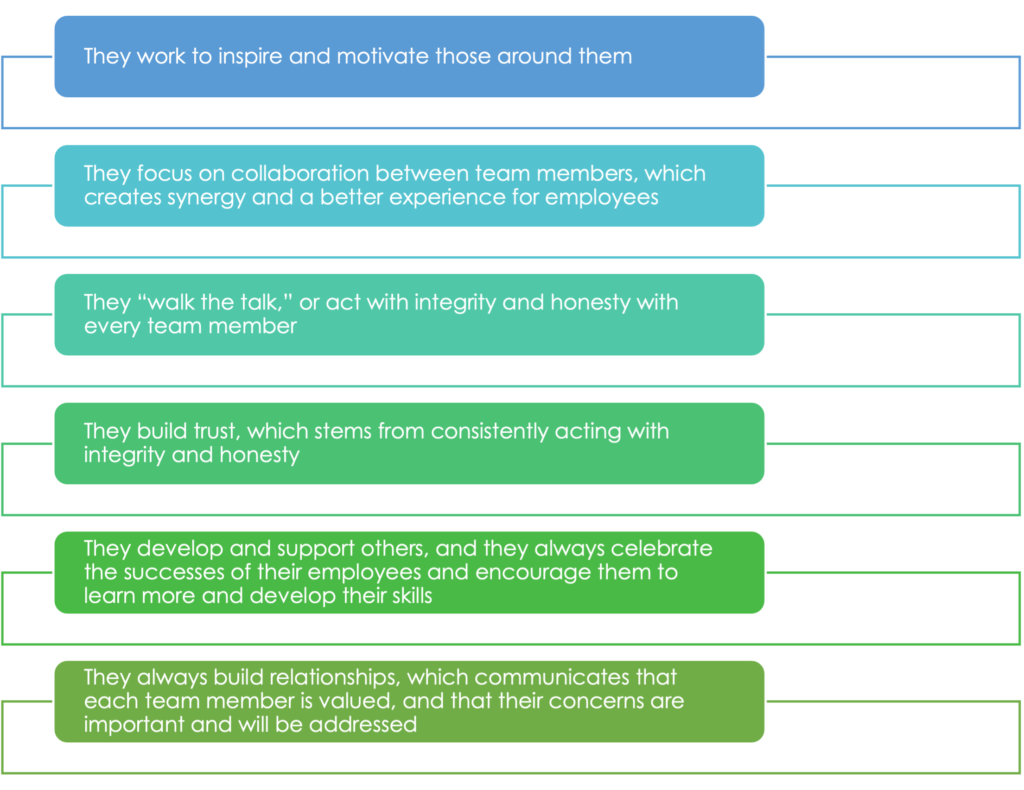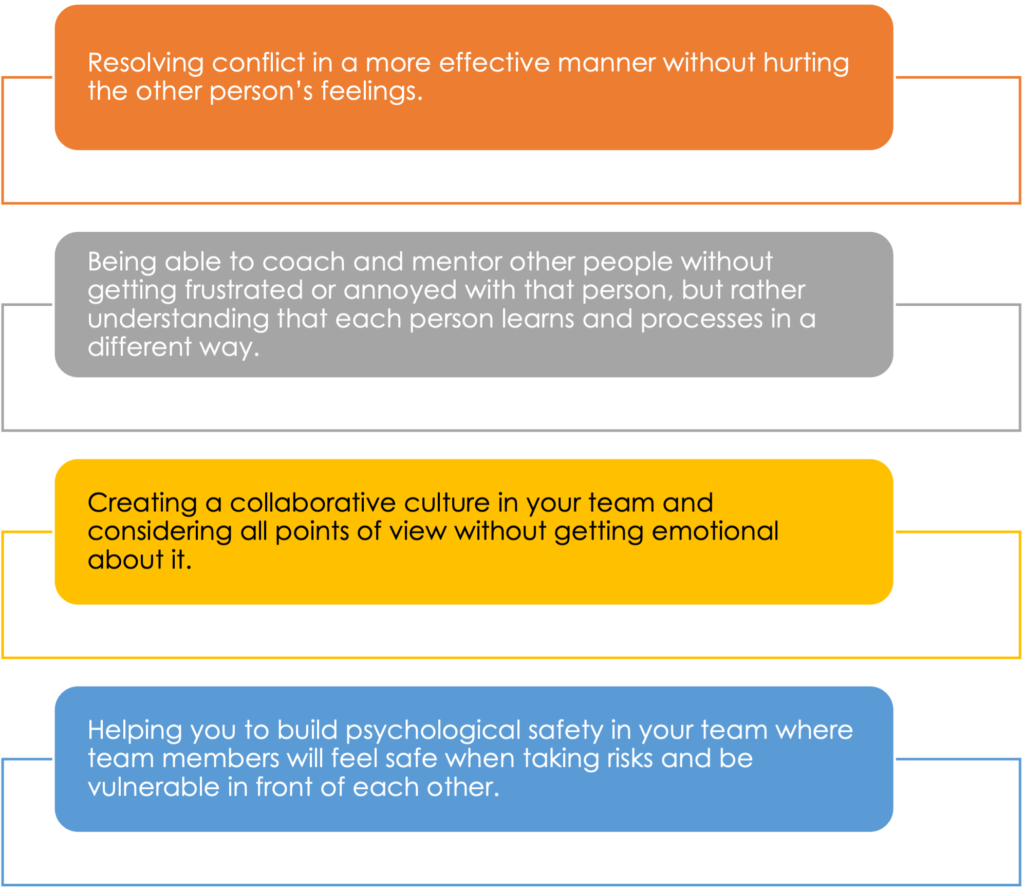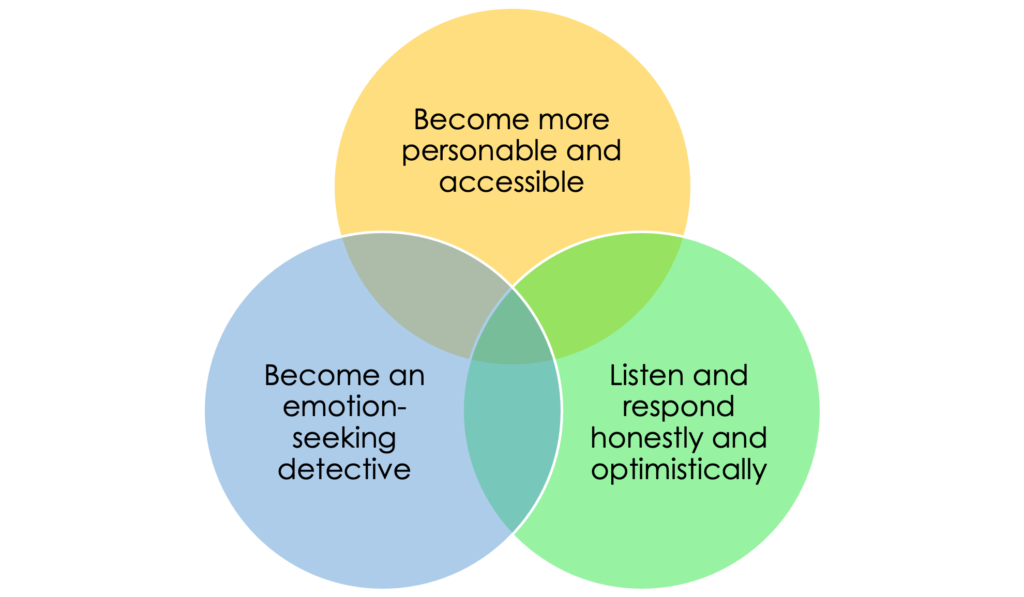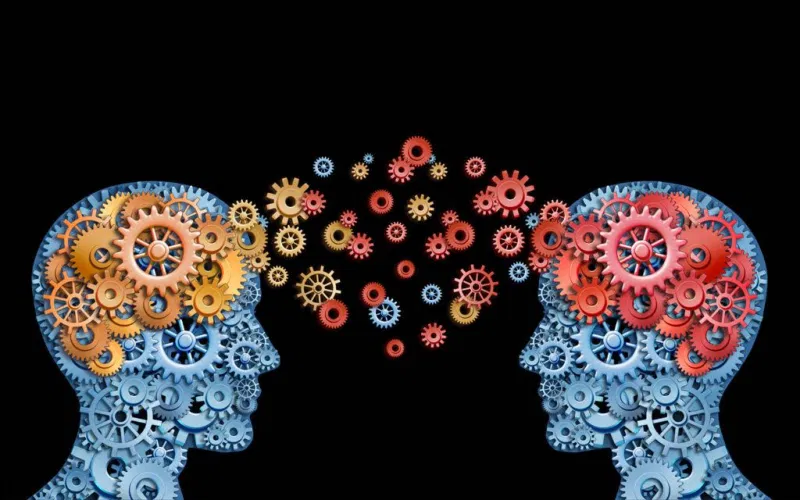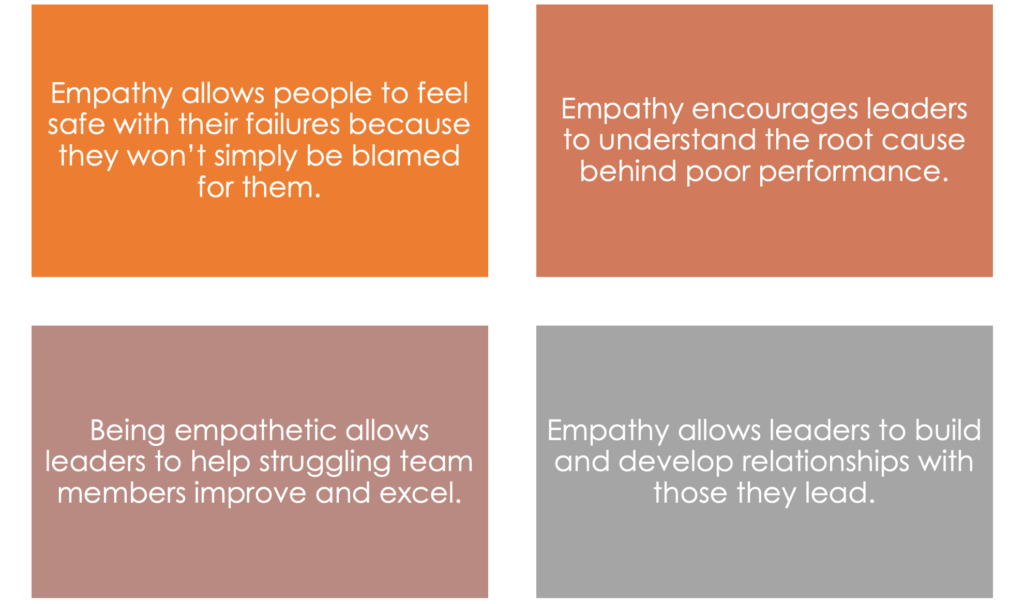By Carli Uys
Head of Marketing, Research and Development (MCom Industrial Psychology and MCom Communication studies)
Building your emotional intelligence: Four key skills to increase your EQ
The skills that make up emotional intelligence can be learned at any time. There is however a difference in simply learning about emotional intelligence and applying that knowledge to one’s life. In order for one to be able to permanently change one’s behaviour in ways that stand up under pressure, one needs to learn how to overcome stress in the moment, and in one’s relationships, in order to remain emotionally aware.
Key skills (domains) to building your emotional intelligence
- Self-awareness
- Self-management
- Social awareness
- Relationship management
Self-awareness
The emotion wheel is a tool that enables people to describe and verbalise their emotions, as well as understand the relationship between and the intensity of their feelings. The ability to articulate and identify emotions is an important component of emotional intelligence.
The emotion wheel can help you identify your feelings and emotions and become more aware them.
Being able to manage your stress is only the first step to building emotional intelligence. Your current emotional experience is likely a reflection of your early life experiences. The ability you have to manage core feelings such as anger, sadness, fear and joy often depend on the quality and consistency of your early life emotional experiences. If your primary attachment figures in childhood understood and valued your emotions, then it’s likely your emotions have become valuable assets in your adult life. If your emotional experiences as an infant were confusing, threatening or painful, it’s likely you’ve tried to distance yourself from your emotions.
If this is the case, then you have to start learning to connect to your emotions – having a moment-to-moment connection with your changing emotional experience – to be able to understand how your emotions influence your thoughts and actions.
Self-management
In order for you to engage your emotional intelligence, you must be able to use your emotions to make constructive decisions about your behaviour. When you become overly stressed, you can lose control of your emotions and the ability to act thoughtfully and appropriately. Your ability to think clearly and accurately assess your and other people’s emotions, become compromised. When you have the ability to manage your stress and stay emotionally present, you will be able to learn to receive upsetting information without letting it override your thoughts, feelings and self-control. You will then be able to make choices that will allow you to control your impulsive feelings and behaviours, manage your emotions in healthy ways, take initiative, follow through on commitments, and adapt to changing circumstances.
Social awareness
Social awareness enables you to recognise and interpret the mainly non-verbal cues others are constantly using to communicate with you. These cues help you to understand how others are feeling, how their emotional state is changing from moment-to-moment, and what’s truly important to them. When groups of people send out similar non-verbal cues, then you are able to read and understand the power dynamics and shared emotional experiences of the group.
To be able to build social awareness, you will need to be able to recognise the importance of mindfulness and social process. Social awareness requires your presence in the moment. Do not multitask when you are communicating with someone else, as you will miss the subtle emotional shifts taking place in other people that help you fully understand them.
Relationship management
Being able to work well with other people is a process that begins with emotional awareness and your ability to recognise and understand what other people are experiencing. Once your emotional awareness is in play, you can effectively develop additional social/emotional skills that will make your relationships more effective, fruitful and fulfilling. To me able to manage relationships you should focus on the following:
- Become aware of how effectively you use your non-verbal communication
- Use humour and play to relieve stress
- Learn to see conflict as an opportunity to grow closer to others
According to Daniel Goleman and Richard Boyatzis, nested in each key domain are twelve emotional intelligent competencies. These twelve emotionally intelligent competencies are learnable capabilities that allow outstanding performance at work or as a leader.
Emotional intelligence domains and competencies
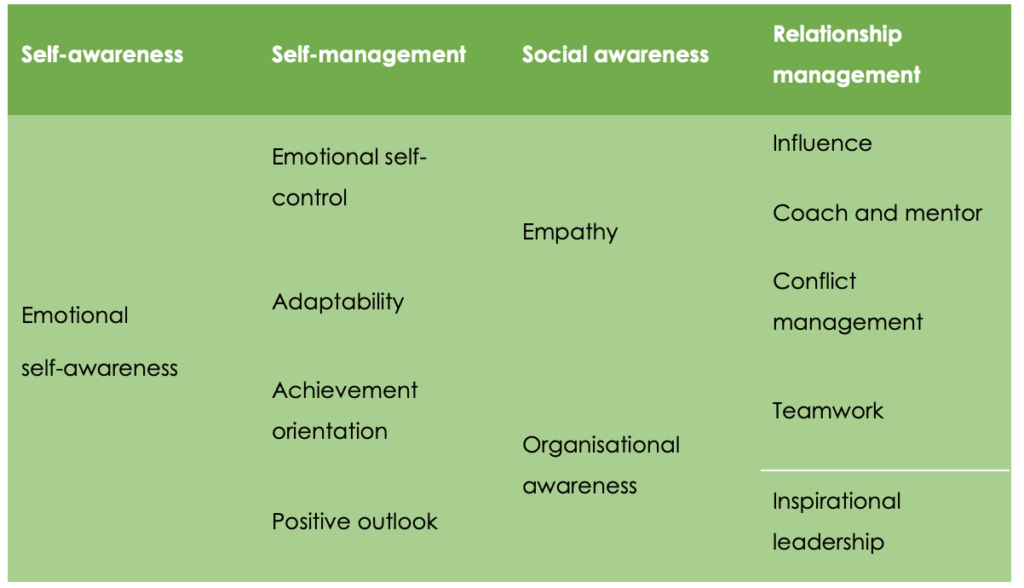
How can you tell where your EI needs improvement?
You can simply review the 12 competencies in your mind which can give you a sense of where you might need some development. There are a number of formal models of EI, and many of them come with their own assessment tools. When choosing a tool to use, consider how well it predicts leadership outcomes. Some assess how you see yourself; these correlate highly with personality tests. Other assessments define EI as an ability.
Goleman recommends a comprehensive 360-degree assessment, which collects both self-rating and the view of others who know you well. This external feedback is particularly helpful for evaluation all areas of emotional intelligence, including your self-awareness. You can get a rough gauge of where your strengths and weaknesses lie by asking those who work with you to give you feedback. The more people you ask, the better a picture you get.
To be able to excel as a leader, one needs to develop a balance of strengths across suites of EI competencies. When this is done, excellent business results should follow.



